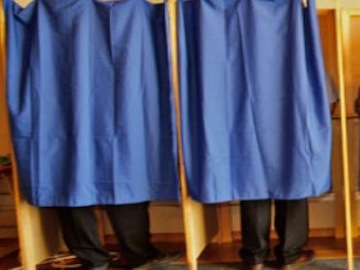County in Colo. has high number on inactive voters
New tallies released by Pueblo County Clerk Bo Ortiz on Thursday put the percentage of “inactive voters” who returned ballots this year at 1,791 or nearly 11 percent of county voters. That’s a gain of nearly 5 percentage points from 2009 and well above the previous statewide 3 percent average. “A press release issued October 31 by this office contained a mistake in the reporting of the Inactive Failed to Vote tabulations,” Ortiz wrote in a release.
Jul 31, 2020504.8K Shares8.1M Views
New tallies released by Pueblo County Clerk Bo Ortiz on Thursday put the percentage of “inactive voters” who returned ballots this year at 1,791 or nearly 11 percent of county voters. That’s a gain of nearly 5 percentage points from 2009 and well above the previous statewide 3 percent average.
“A press release issued October 31 by this office contained a mistake in the reporting of the Inactive Failed to Vote tabulations,” Ortiz wrote in a release. “The correct number of IFTV was 1791, which is 10.9 percent turnout, and still above the statewide average.”
In his October 31 release, Ortiz touted an exceptionally large percentage of inactive voters ballots cast. He said the figures suggested inactive voters were accounting for 28 percent of the vote.
“That was just human error. It just happened when we were pulling the extract[ed numbers ] into Excel,” Ortiz told the Colorado Independent, referring to the popular accounting software program.
Regardless of the mistake in the Pueblo Clerk’s office, tallies from the secretary of state’s office demonstrate that inactive voters played a major role in this week’s election, accounting for roughly 5.5 percent of the total votes castin the state.
“I can say that mailing ballots to inactive voters is the right thing for Pueblo County,” Ortiz said. “We’re used to it here. People expect their ballots and I want to keep that consistent.”
Ortiz told the Independent weeks ago that he believes his main objective as clerk is to expand participation in elections, and today he said he was proud of the fact that, in effect, inactive voters in Pueblo County got to voice their concerns and opinions twice: when the candidates and their supporters knocked on their doors and when they returned their ballots to cast their votes.
The numbers of inactive voter ballots cast is a topic of special interest in Colorado this year because Secretary of State Scott Gessler, elected to office last November, attempted to prevent counties from mailing ballots to inactive voters, upending a practice that has been ongoing for roughly five years, as the state moves increasingly toward mail-in elections.
Inactive voters are legally registered voters who have, for whatever reason, failed to cast ballots in the previous general election. Inactive voters tend to be citizens who move often or have limited access to the internet, for example, and include mostly minority voters, youth and elderly voters and people with limited resources.
Ortiz and other county clerks battled against Gessler’s new interpretation of state election law when he brought it out. Ortiz argued that Gessler’s order would force him to violate the federal Uniform Military and Overseas Voters Act, which obligates county clerks to send ballots to all eligible voters in the military, active and inactive.
Gessler was unmoved by the argument. He sued Denver County to stop Clerk Debra Johnson from mailing out ballots to inactive voters. The district court judge hearing the case, however, ruled against Gessler and denied his request for an injunction against the county. A ruling on Gessler’s interpretation of state law is expected in the spring.
Gessler defended his new rule by arguing that he was seeking to make state election processes uniform and to guard against fraud. He never provided any evidence of fraud related to inactive voter ballots. Many believed Gessler, a longtime Republican partisan campaign finance and election law attorney, was engaging in thinly veiled vote suppression.
*Got A Tip? Story Pitch?

Paolo Reyna
Reviewer
Paolo Reyna is a writer and storyteller with a wide range of interests. He graduated from New York University with a Bachelor of Arts in Journalism and Media Studies.
Paolo enjoys writing about celebrity culture, gaming, visual arts, and events. He has a keen eye for trends in popular culture and an enthusiasm for exploring new ideas. Paolo's writing aims to inform and entertain while providing fresh perspectives on the topics that interest him most.
In his free time, he loves to travel, watch films, read books, and socialize with friends.
Latest Articles
Popular Articles
